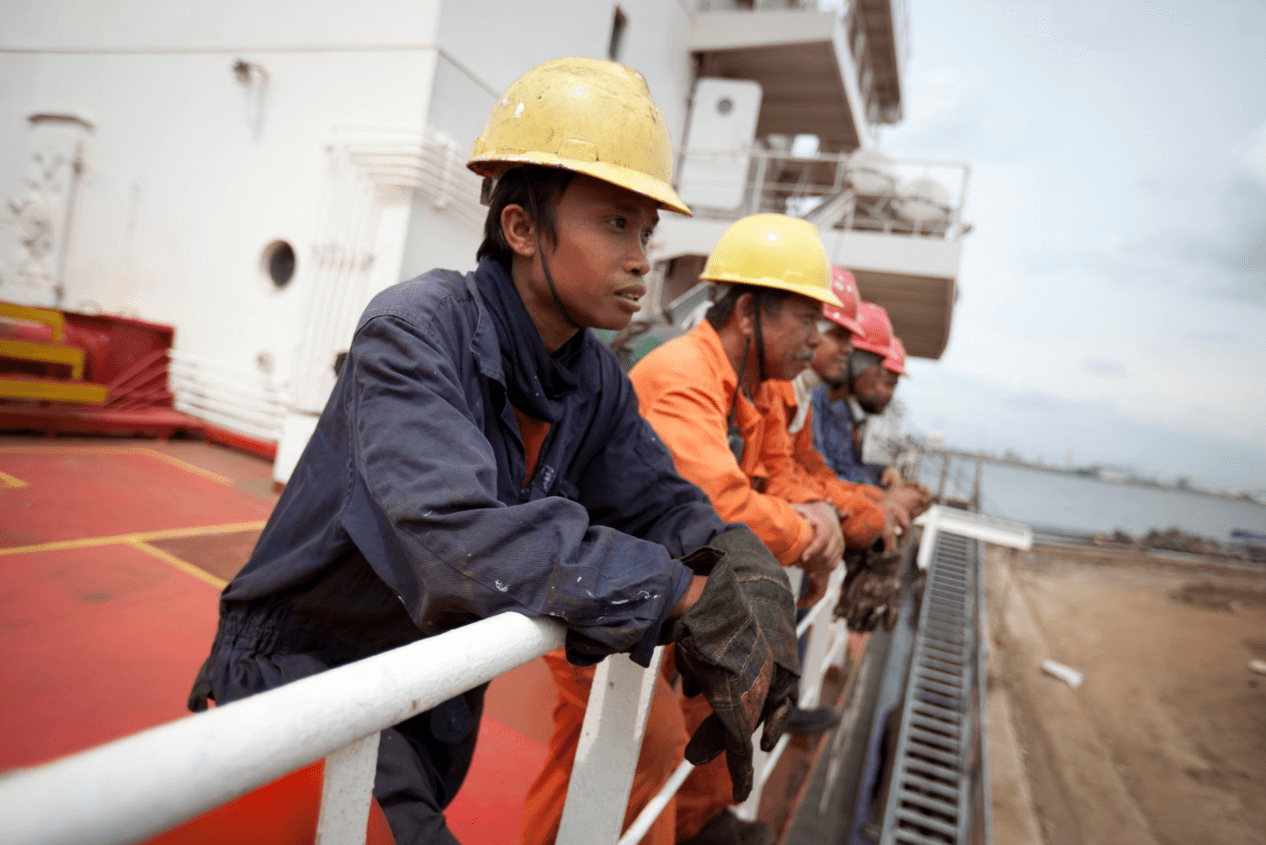Resources
A collection of free resources to help you raise funds and share the work we do

By Michael Grey
At a time when seafarers are often trapped aboard their ships for months on end, with no shore leave and tours extended by Covid-19 regulations, living conditions matter more than ever. Even before the pandemic struck, the standard of accommodation aboard ships emerging from the shipyards was a cause for criticism. Indeed, a study by The Mission to Seafarers some time ago described too much of ships’ accommodation as “institutional” and called for more imagination in its “liveability”. Those seafarers who had been at sea for some years were reported as noting that the standards were clearly falling.
Are things getting any better, at a time when on-board standards arguably matter more than ever? Some interesting work by the Seafarers International Research Centre at Cardiff University sadly suggests that more thought in the design of accommodation for seafarers aboard cargo ships is necessary.
The work was completed before the pandemic struck but the research, which was financed by Lloyd’s Register Foundation, has now been revealed in the shape of a leaflet that provides clear examples of poor (or better described as thoughtless) design in both the furnishing of accommodation and other important matters such as temperature, vibration and noise and the provision of leisure equipment.
It might be suggested that the minimum standards of accommodation are already prescribed by the Maritime Labour Convention, but maybe the word ‘minimum’ has been interpreted rather widely! Some of the issues, which have been raised by very many seafarers during the research, which took the researchers to ships and shipyards around the world, are not terribly difficult to address, with some goodwill and forethought.
Cabins, for instance, were often provided with inadequate storage space, which is an important criticism, as seafarers, who tend to join and leave their ships by air, do not tend to be burdened with a great deal of ‘stuff’. The research points out that cramped and cluttered spaces impacts on wellbeing and may contribute to poor mental health.
Heat and light
A further well-documented complaint suggests that there is often insufficient control of light and temperature in cabins, with the latter often centrally controlled so that the individual has little choice. And bearing in mind that the modern seafarer tends to spend more time in the cabin than did their predecessors, this too is more important than ever. Others have noted that modern cargo ships often have little recreational space in the fresh air around their accommodation blocks, and may be poorly supplied with recreational rooms, so cabins really matter.
Indeed, the research comments adversely on the lack of dedicated provision for recreation and suggests that a range of facilities could be provided that would make life at sea rather more pleasant. Based on what is provided on some very well fitted ships, it is suggested that such facilities as an indoor swimming pool, basketball or squash court, and a well-ventilated gymnasium, would make a really positive difference. A decent sized lounge, equipped with satellite TV would also make life better, as would cabins with unrestricted access to the internet. If such facilities could be included in the initial specification there is no doubt that the cost would not be unreasonable.
It is also pointed out that noise and vibration methods have improved markedly in recent years, thanks to advances in the cruise ship world, so there is no technical reason why similar standards should not be provided for those who live aboard deep-sea cargo vessels.
But above all, this useful research actually demonstrates how putting the designer in the place of the person who will live in the accommodation can make a difference. If you have natural light (and blackout blinds to aid sleep during daytime) and if you have a pleasant, well-appointed cabin with sufficient furniture for comfort, this goes a long way to promoting mental wellbeing.